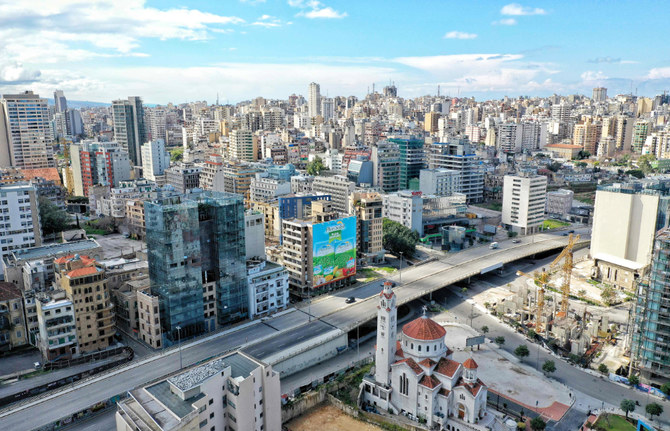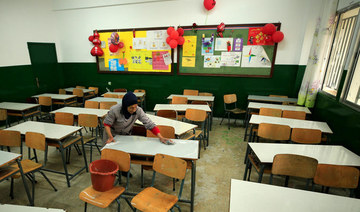BEIRUT: The Lebanese economic crisis is threatening the present and future of millions of children, according to human rights activists and UN officials.
They risk being exposed to child labor and premature marriage in order to help their families make ends meet.
Many people suffering from extreme poverty have resorted to forcing their children to work.
The children can be spotted in grocery stores and in front of express shops on roadsides delivering orders to passersby.
During the last week, there were constant fatal or dangerous incidents involving children as young as six in Lebanon.
A six-year-old boy was killed on Saturday in Baalbek when a hand grenade exploded while he was playing with other children, some of whom were seriously injured.
The children found the device while they were playing.
Weapons are easily carried and used in the region, due to the presence of militias.
Poverty-stricken areas are susceptible to all kinds of dangers and they are often the only place where children can play.
On the same day, social media platforms were buzzing with pictures and news of a Syrian refugee in Lebanon who tortured her two daughters at a housing camp on the outskirts of Muhammarah, on the northern border of Lebanon.
Pictures showed bruises and signs of torture on the bodies of the young girls, who are both younger than two.
While the wife denied abusing the two children and claimed that she had “fallen on them while she was asleep,” a medical examination by a physician in a nearby health clinic showed that one of the two children suffered a dislocated shoulder and bruises on the face, while the other girl had a fractured pelvis.
The girls’ father turned off his phone, so activists in the area reached out to the grandfather of the girls.
One of them was taken to Halba Governmental Hospital to undergo surgery, but the parents were unable to bear the costs of the procedure.
An NGO contacted the UNHCR, which in turn followed up the matter with Lebanese security authorities, and the two girls were transferred to a UNHCR protection center.
If domestic violence and living hardships were not enough, another incident occurred more than a week ago at a zoo in Lebanon, which almost led to the death of a child.
A boy, aged three, was accompanied by his brothers and grandfather to a zoo in Nahr Al-Kalb, north of Beirut.
They were wandering between animal cages when the child approached a lioness’ cage, according to the grandfather.
In an instant, the animal struck the boy and began to bite his body.
But the grandfather and another person managed to snatch the child from the clutches of the lioness.
The child suffered 21 wounds all over his body, including severe gashes.
The child’s father filed a legal complaint against the zoo’s owners due to an alleged lack of supervision by state agencies.
He said that “the principle of imprisoning animals is rejected, but in case it happens, there are conditions that must be applied.
“The least of these conditions is that the captured lions do not starve to a point where if they escape from their cages, they will attack people and cause a massacre.”
A report issued by UNICEF on Dec. 17 tackled violence against children in Lebanon and warned that “at least 1 million children are at risk of violence as the crisis in Lebanon intensifies.”
It estimated that “one out of two children in Lebanon is at risk of physical, psychological or sexual violence, at a time when families are struggling to cope with the worsening crisis in the country.”
The report coincided with the visit of Special Representative of the UN Secretary-General on Violence against Children Dr. Najla Mualla Majid to Lebanon.
She said: “More than ever, there is a need to ensure that children are protected from abuse, harm and violence and that their rights are protected.”
Lebanon, which hosts more than 1 million refugees from Syria, is suffering from an economic crisis described by the World Bank as “one of the worst crises the world has witnessed in modern times.”
More than 80 percent of the population lives in poverty, and the local currency has lost 90 percent of its value against the US dollar.
UNICEF estimated that “about 1.8 million children — more than 80 percent of children in Lebanon — are now suffering from multidimensional poverty.”
Its report showed that “the number of child abuse cases and cases dealt with by UNICEF and its partners increased by nearly 50 percent between October 2020 and October 2021, meaning that assaults rose from 3,913 to 5,621 cases.”
It has become common to see homeless children roaming the streets of the capital and in various regions to beg, either prompted by their parents or due to their own hunger and desperation.
Many mothers in poor communities who were approached by local TV stations during Christmas revealed that their children sleep some days without eating dinner.
























